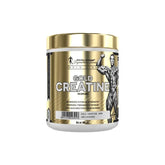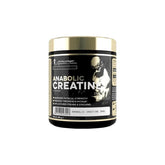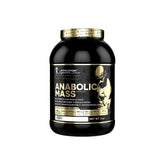Does Creatine Affect Kidneys or Liver? Medical Insight
Does Creatine Affect Kidneys or Liver? Medical Insight
Creatine does not harm the kidneys or liver in healthy individuals when taken at recommended doses (3–5 g per day). Dozens of human studies show that creatine is safe, well-tolerated, and does not cause organ damage or toxicity. The confusion arises because creatine slightly raises creatinine levels in the blood, a byproduct that doctors often use to measure kidney function. But that rise is normal and harmless. However, people with existing kidney or liver conditions should use creatine only under medical supervision, as their organs already function at a reduced capacity.
Table of Contents
-
What Is Creatine?
-
Understanding Kidney and Liver Functions
-
Why People Think Creatine Affects Kidneys and Liver
-
Scientific Evidence: Creatine and Kidney Health
-
Scientific Evidence: Creatine and Liver Health
-
How Creatine Works Inside the Body
-
Potential Risks and When to Be Careful
-
Safe Dosage and Usage Guidelines
-
Best Practices for Healthy Kidney and Liver Function
-
Common Myths About Creatine Safety
-
Frequently Asked Questions (FAQs)
-
Final Thoughts
What Is Creatine?
Creatine is a naturally occurring compound made from three amino acids: arginine, glycine, and methionine. Your liver and kidneys produce about 1–2 grams per day, and the rest usually comes from protein-rich foods like red meat and fish.
Inside your muscles, creatine converts into phosphocreatine, which helps regenerate ATP, the molecule that fuels every contraction, lift, and sprint.
That’s why athletes, bodybuilders, and fitness enthusiasts use creatine monohydrate to enhance strength, muscle volume, and recovery.
But since the body processes creatine through the kidneys and liver, people often worry it could harm these organs, which brings us to the main question.
Understanding Kidney and Liver Functions
Before discussing effects, it’s essential to understand what the kidneys and liver actually do.
Kidneys: The Body’s Filtration System
The kidneys filter waste and toxins from your blood, balance fluids and electrolytes, and maintain blood pressure. They measure health primarily through:
-
Serum Creatinine: a byproduct of creatine breakdown
-
Glomerular Filtration Rate (GFR): how efficiently kidneys filter blood
-
Blood Urea Nitrogen (BUN): another waste product reflecting renal performance
When people take creatine, serum creatinine can rise slightly but this does not mean kidney damage, as confirmed by research and medical institutions like Cleveland Clinic and Harvard Health.
Liver: The Metabolic Powerhouse
Your liver plays a key role in:
-
Synthesizing creatine naturally
-
Processing nutrients and detoxifying chemicals
-
Producing bile and metabolic enzymes (ALT, AST, ALP)
Since creatine is partially made in the liver, it’s natural to assume it could strain it but studies say otherwise, as long as supplementation remains moderate and hydration adequate.
Why People Think Creatine Affects Kidneys and Liver
The misconception mostly comes from lab test misinterpretation.
Doctors often check serum creatinine to assess kidney function. When someone starts creatine supplementation, their creatinine level might rise slightly. But this increase is not due to kidney failure, it’s simply a result of more creatine circulating and breaking down into creatinine.
Similarly, people confuse creatinine (the waste product) with creatine (the supplement). The names are close, but their roles are very different.
Some early anecdotal reports and rare case studies linked creatine misuse or contaminated supplements with abnormal lab results. However, these were either due to:
-
Excessive doses (20–30 g for months without breaks)
-
Poor-quality products or contaminants
-
Dehydration
-
Preexisting organ disease
Modern controlled research, cited across medical authorities like Mayo Clinic, WebMD, and Healthline, shows no proof of harm in healthy people.
Scientific Evidence: Creatine and Kidney Health
Short-Term Studies
Short-term trials (ranging from 1 to 12 weeks) consistently demonstrate that creatine does not impair renal function.
In one study, athletes using 5 g of creatine daily showed no change in GFR, BUN, or electrolyte balance.
Even during “loading phases” (20 g/day for 5–7 days), kidney biomarkers stayed within normal range. Researchers from institutions like the International Society of Sports Nutrition concluded that creatine supplementation is “safe for healthy individuals.”
Long-Term Studies
Safety has also been evaluated over years of use. Long-term supplementation (up to 5 years) revealed no signs of kidney stress or deterioration in renal filtration.
In resistance-trained men, long-term creatine intake did not alter kidney volume or function.
Another review analyzing over 500 participants found no adverse renal effects even with consistent use. The consensus across clinical literature remains clear, creatine does not cause kidney damage in healthy adults.
What About Elevated Creatinine Levels?
Creatine breaks down naturally into creatinine, which the kidneys excrete.
When supplementation increases your body’s creatine pool, creatinine production also increases slightly, making blood tests appear elevated.
This false signal has led to misunderstanding, but it’s not a sign of damage. Doctors now often recommend alternative markers like cystatin C for more accurate renal assessment in creatine users.
Scientific Evidence: Creatine and Liver Health
The Liver’s Role in Creatine Metabolism
Your liver helps synthesize creatine endogenously from amino acids. When you supplement creatine, it may temporarily downregulate natural production but this does not harm the organ or cause toxicity.
Most human studies show that liver enzyme levels (ALT, AST, ALP, GGT) remain normal during supplementation.
Animal and Human Evidence
-
In animal studies using high doses, creatine combined with alcohol showed signs of increased oxidative stress, meaning, when creatine is paired with toxins like ethanol, the liver may struggle more.
-
However, other studies show the opposite: creatine protects the liver from fat accumulation and improves metabolic efficiency in conditions like non-alcoholic fatty liver disease (NAFLD).
That’s because creatine supports cellular energy balance and reduces inflammatory signaling. In short, its effect depends on the overall metabolic environment, not the supplement itself.
Creatine in Liver Disease Patients
In some experimental cases, doctors have explored creatine to treat muscle wasting (sarcopenia) in patients with chronic liver conditions. Preliminary evidence suggests benefits, but these patients require medical monitoring and individualized dosing.
How Creatine Works Inside the Body

Creatine primarily supports energy regeneration by replenishing ATP, especially during high-intensity exercise.
However, its metabolism involves both the liver and kidneys:
-
The liver synthesizes creatine, using methyl donors and amino acids.
-
The kidneys filter out excess creatinine, the end product.
This system works seamlessly in healthy people. Problems arise only if the filtration or metabolic capacity is already compromised by disease, alcohol use, or toxins.
When used within safe limits, creatine can even support organ health indirectly, by enhancing cellular energy status and reducing oxidative burden.
Potential Risks and When to Be Careful
Creatine is one of the most studied and safest supplements, but not everyone should use it casually.
1. People with Kidney Disease
If you have chronic kidney disease (CKD), glomerulonephritis, or a single kidney, creatine could add extra metabolic workload.
In such cases, doctors typically advise avoiding or closely monitoring supplementation.
2. People with Liver Disease
Liver conditions like hepatitis, fatty liver, or cirrhosis may limit detoxification efficiency.
While moderate creatine is not inherently toxic, combining it with alcohol or hepatotoxic drugs (e.g., acetaminophen, certain antibiotics) increases stress on the liver.
3. Overdosing or Poor Hydration
Taking more than 10 g per day for months, skipping hydration, or using unverified brands can increase risk of:
-
Gastrointestinal discomfort
-
Temporary water retention
-
Muscle cramps
-
Rarely, abnormal lab readings
Stick to evidence-based dosages and ensure hydration of 2.5–3 liters daily.
4. Combining with Alcohol or Drugs
Creatine itself is safe, but combining it with alcohol, NSAIDs, or certain medications may amplify organ stress.
Avoid stacking it with other stimulants or high-dose pre-workouts without checking ingredient interactions.
Safe Dosage and Usage Guidelines
To use creatine safely and effectively:
-
Loading Phase (Optional): 20 g/day (split into 4 doses) for 5–7 days
-
Maintenance Phase: 3–5 g/day thereafter
-
Hydration: Minimum 2.5–3 L water daily
-
Timing: Anytime, though post-workout may slightly improve uptake
-
Cycle or Not?: Not required; many athletes take creatine year-round safely
Creatine monohydrate remains the most researched and trusted form, with the best balance of purity, stability, and absorption.
Best Practices for Healthy Kidney and Liver Function
If you use creatine regularly, consider these supportive habits:
-
Stay Hydrated — water helps your kidneys filter efficiently.
-
Limit Alcohol — alcohol stresses both organs and negates benefits.
-
Avoid Unregulated Supplements — choose certified products with lab-tested purity.
-
Monitor Labs Periodically — especially if you use other medications.
-
Eat a Balanced Diet — fiber, antioxidants, and lean protein support organ repair.
-
Maintaining Regular Exercise — improved blood flow aids detoxification.
By combining creatine with a healthy lifestyle, your kidney and liver function will remain optimal.
Common Myths About Creatine Safety
Despite decades of research and widespread use, creatine continues to face myths and misconceptions, often spread by gym gossip, social media, or outdated opinions. Below are the most common myths about creatine safety, along with factual insights supported by science and medical understanding.
Myth 1: Creatine Causes Kidney Failure
One of the most persistent myths is that creatine damages the kidneys or causes kidney failure. This concern began because creatine supplementation slightly raises the level of creatinine in the blood, a substance doctors use as a biomarker to measure kidney function. However, elevated creatinine levels from supplementation are not a sign of kidney damage; they simply reflect increased creatine metabolism. Clinical trials from respected institutions like the Mayo Clinic and the National Institutes of Health have consistently shown that creatine does not impair kidney function in healthy adults, even when taken for years.
Research involving athletes, military personnel, and older adults confirms that kidney filtration rates (GFR) remain normal. The only time caution is warranted is when a person already has kidney disease or reduced renal function, in which case they should consult their doctor before starting supplementation.
Myth 2: Creatine Damages the Liver
Another common misunderstanding is that creatine harms the liver. In reality, the liver plays a key role in naturally producing creatine from amino acids. When you supplement with creatine monohydrate, you’re essentially reducing the liver’s workload, not increasing it. Scientific studies have found no evidence of liver enzyme elevation or structural liver damage in long-term users of creatine. Some data even suggests that creatine can have protective effects, especially in conditions that involve impaired energy metabolism.
For instance, research published in medical journals linked to Johns Hopkins Medicine noted that creatine supplementation may help maintain healthy energy production in liver cells and potentially protect against certain metabolic stresses. So rather than damaging the liver, creatine often supports it through improved cellular efficiency.
Myth 3: Creatine Makes You Dehydrated
People often believe that creatine causes dehydration or cramps because it draws water into muscle cells. However, that’s a misunderstanding of how hydration balance works. Creatine increases intracellular water, meaning it enhances hydration inside your muscle fibers, not depletes it from the rest of your body. In fact, this additional water retention can improve thermoregulation and exercise tolerance in hot environments.
Studies on athletes and endurance performers show that those using creatine actually maintain better overall hydration levels during high-intensity workouts. The key is to drink sufficient water throughout the day, which is a best practice for anyone training regularly, creatine user or not. As long as you stay hydrated, creatine will not make you dehydrated, it will help your muscles store more energy and fluid for better performance.
Myth 4: Creatine Is a Steroid
This myth could not be further from the truth. Creatine is not a steroid, hormone, or synthetic drug. It’s a naturally occurring compound found in everyday foods like beef, chicken, and fish, and your body produces it naturally in the liver, kidneys, and pancreas. Steroids are synthetic hormones designed to mimic testosterone, while creatine simply helps recycle adenosine triphosphate (ATP), the body’s main energy molecule.
The reason some people confuse creatine with steroids is because both can improve muscle mass and performance. But the mechanisms are completely different. Creatine works through cellular energy pathways, not hormonal changes. Organizations like the International Society of Sports Nutrition (ISSN) and Harvard Health both classify creatine as one of the safest and most effective natural supplements in the world, with no steroid-like properties or hormonal side effects.
Myth 5: You Need to Cycle Off Creatine
Many people think they must cycle creatine, taking it for a few months, then stopping, to “reset” the body. This belief likely stems from old bodybuilding culture, not scientific data. Studies spanning several years have shown that continuous creatine use at recommended doses (3–5 grams daily) does not suppress the body’s natural creatine production or cause dependency.
Long-term users have maintained stable kidney and liver enzyme levels, consistent muscle response, and no negative adaptations. Cycling off creatine is not harmful, but it is unnecessary for safety reasons. Your body naturally regulates creatine storage, and any excess is simply excreted through urine. The only reason someone might choose to cycle is for personal preference, budget, or to monitor individual response, not because of any proven medical requirement.
Most myths surrounding creatine stem from misunderstandings of basic biology or misinterpretation of blood test results. Modern medical research, including studies referenced by institutions like Cleveland Clinic and PubMed, overwhelmingly supports creatine’s safety in healthy adults. When used correctly, it remains one of the most studied, effective, and reliable supplements for improving performance, recovery, and overall health without harming the kidneys or liver.
Frequently Asked Questions
1. Does creatine harm kidneys or liver long-term?
No, long-term studies show that creatine is safe for kidney and liver health when taken in normal doses and with adequate hydration.
2. Why do my lab results show high creatinine after using creatine?
It’s a normal effect. Creatine turns into creatinine as part of its metabolism. The rise reflects increased intake, not organ damage.
3. Can people with mild kidney issues take creatine?
They should consult a doctor first. In most cases, physicians recommend avoiding creatine if renal function is impaired.
4. Can creatine help fatty liver?
Some emerging studies suggest that creatine might improve fat metabolism in the liver, but more research is needed before it’s considered a treatment.
5. Does creatine increase liver enzymes like ALT or AST?
Not in healthy users. Multiple studies show liver enzymes remain within normal range during creatine supplementation.
6. Can women take creatine safely?
Absolutely. Creatine benefits women for energy, strength, and even hormonal balance. The same safety guidelines apply.
7. Should I stop creatine before a blood test?
If you are undergoing kidney function tests, some doctors may recommend pausing creatine 48 hours before, to avoid false elevation of creatinine levels.
Final Thoughts
Creatine remains one of the safest and most researched supplements available.
In healthy individuals, it does not harm the kidneys or liver. Instead, it enhances muscle energy, improves strength, and can even support metabolic health.
The key lies in responsible use:
-
Stick to 3–5 grams daily
-
Stay hydrated
-
Avoid combining with alcohol or hepatotoxic drugs
-
Choose tested, pure creatine monohydrate brands
If you have preexisting kidney or liver conditions, consult your physician first.
But for most people, creatine is not only safe, it is beneficial when integrated into a balanced, evidence-based fitness plan.








